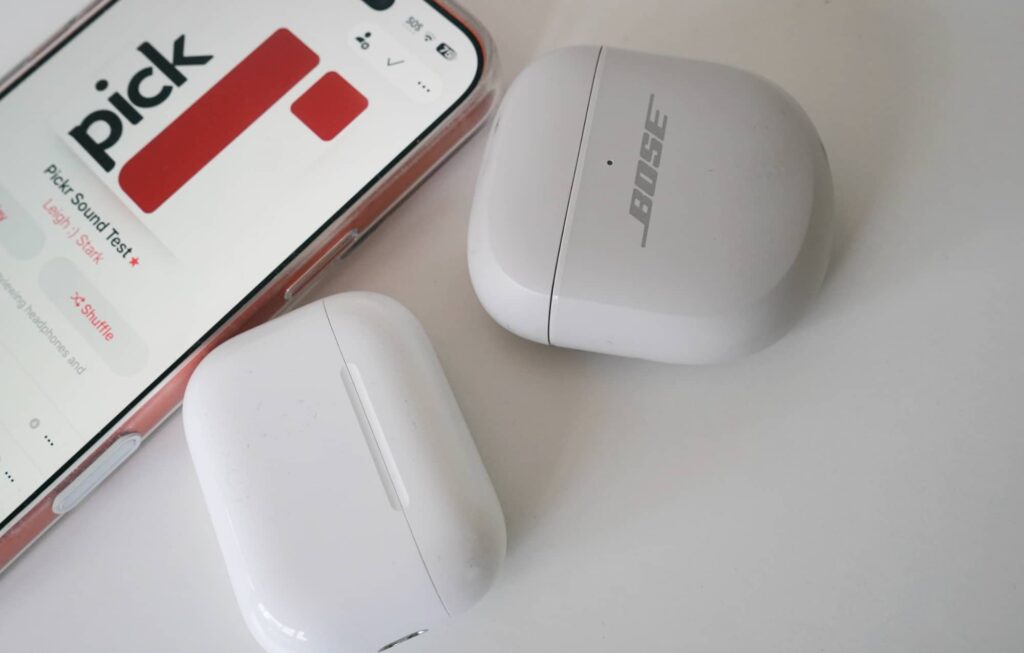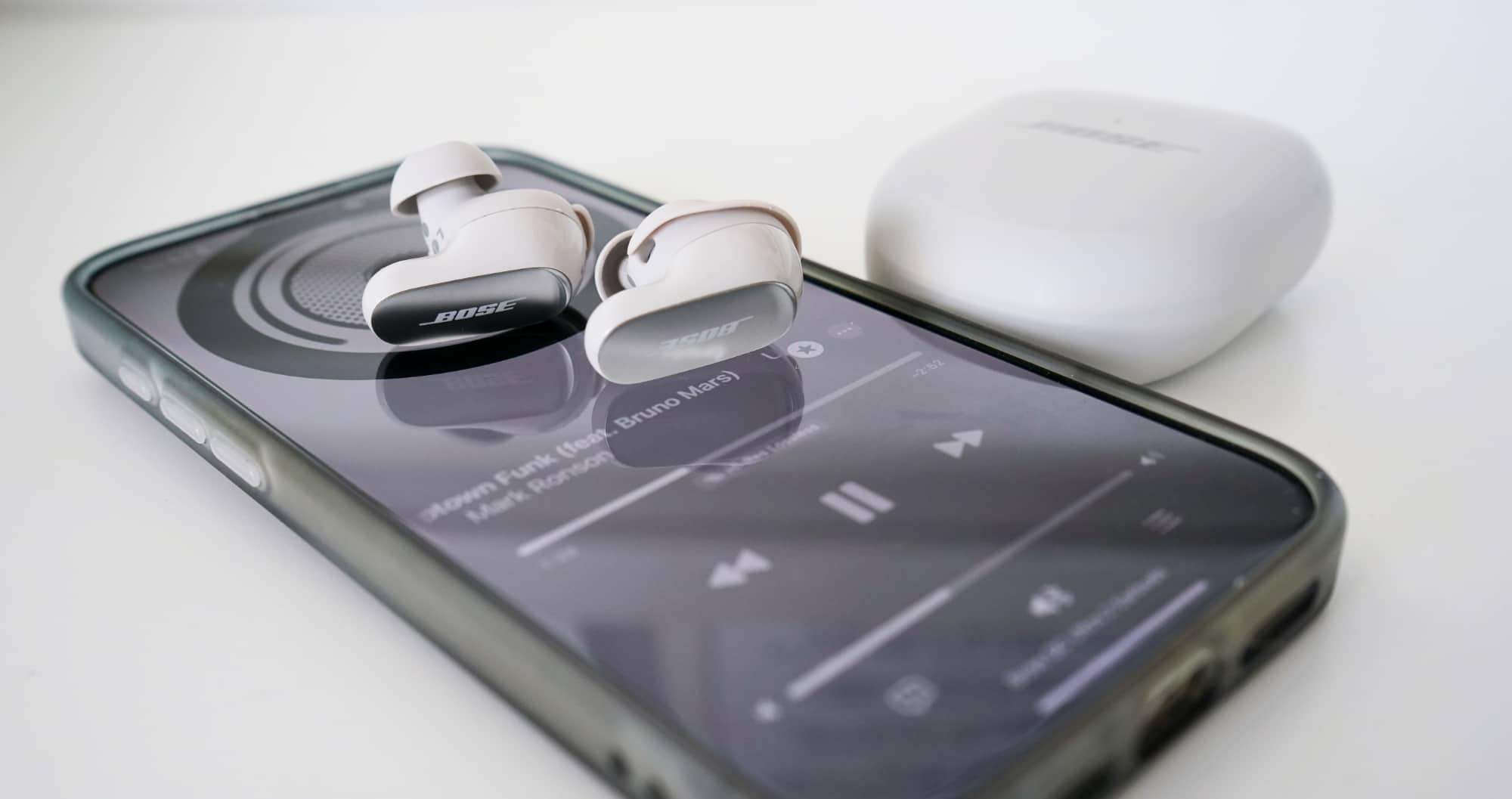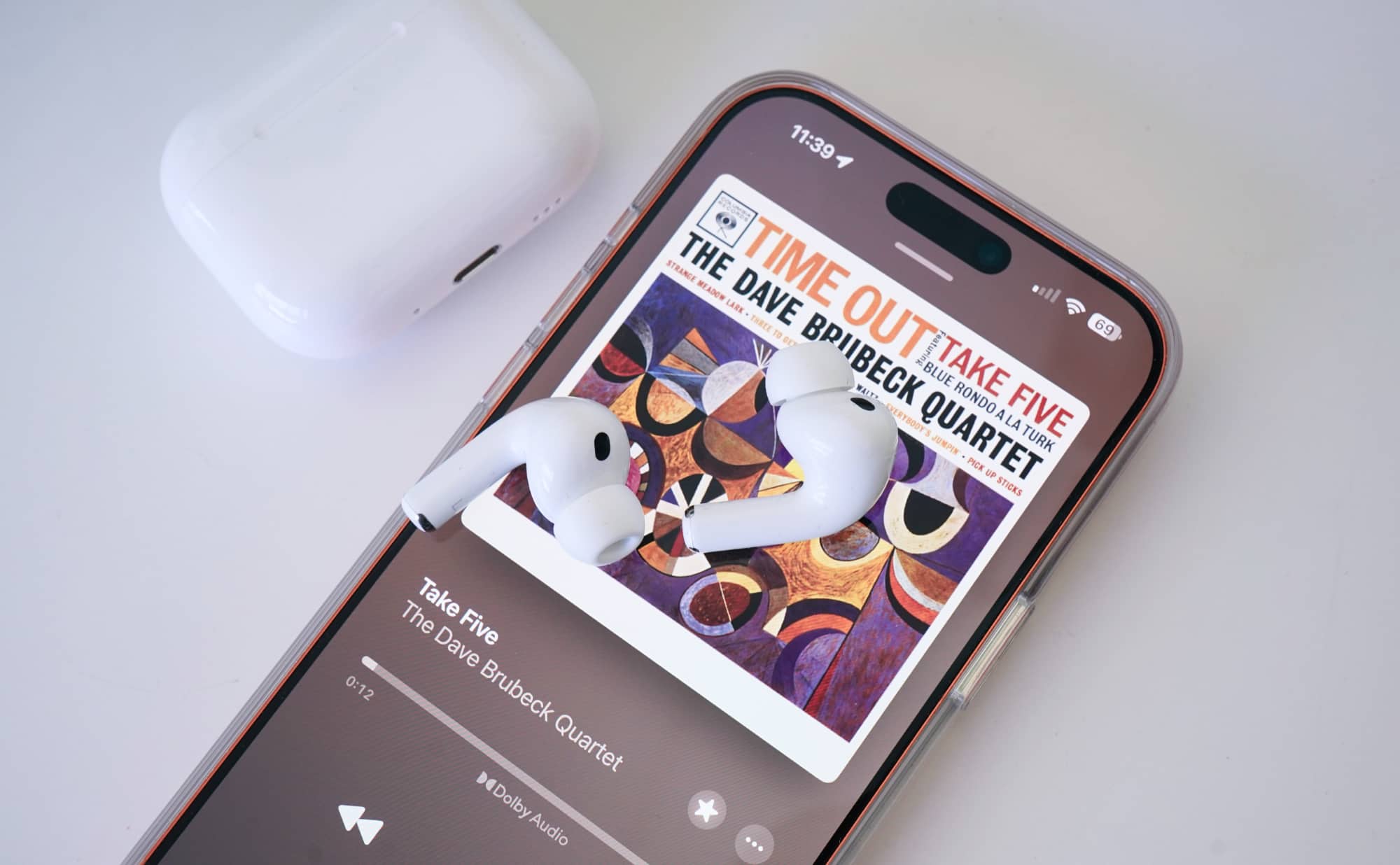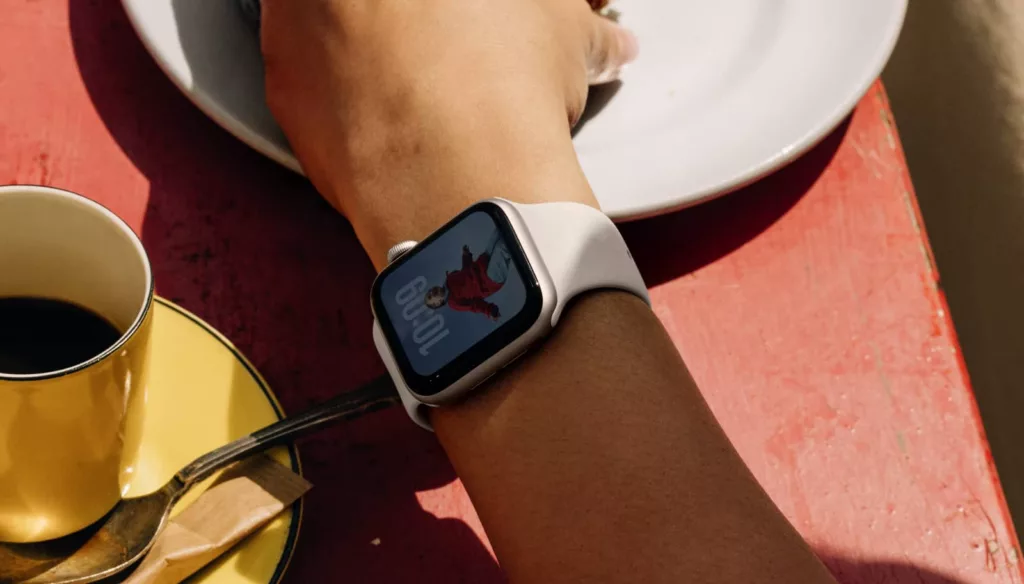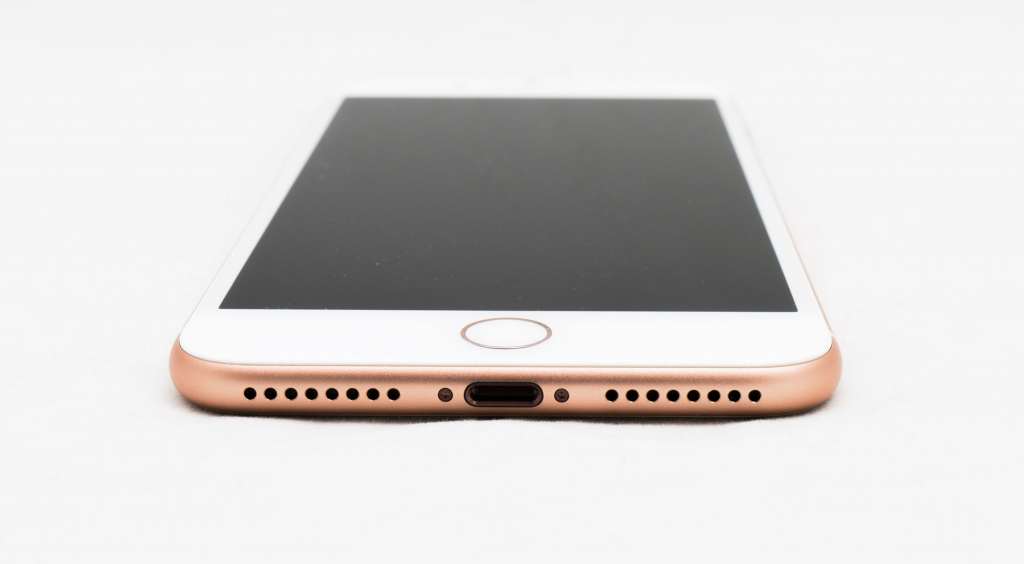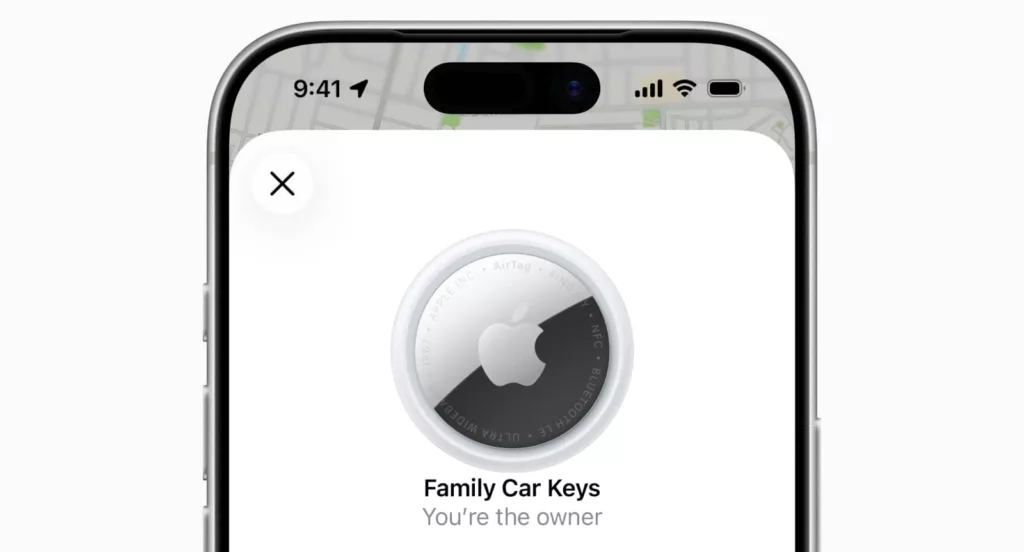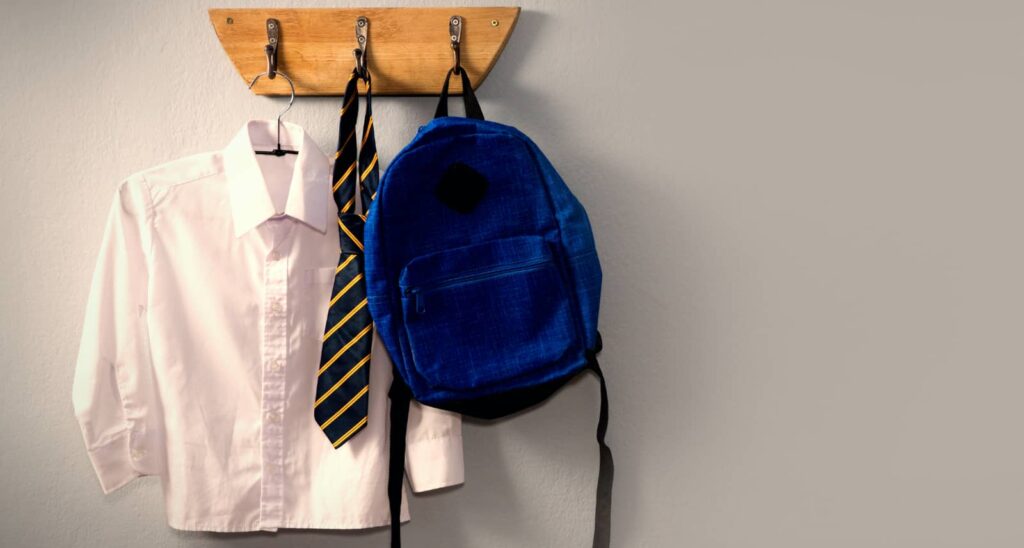If you’re considering buying a new pair of noise cancelling earphones, you have a lot of choices to consider. It’s a range that seemingly grows every week, and the back half of this year delivered some of the best models it ever has, as Bose and Apple decided to fight for “the world’s best”.
It’s a claim either can make, and probably do. Bose’s product page for the QuietComfort Ultra Earbuds 2nd-gen notes “The best. Now even better.”, while Apple’s AirPods Pro 3 page says up front “The world’s best in‑ear Active Noise Cancellation”.
Both say the same thing, which means it’s time to put both to the test.
Having spent time with our review of the Bose QC Ultra Earbuds 2nd-gen, and following on with a review of the Apple AirPods Pro 3, we’re ready to see which really delivers on this promise, and which will give you the best bang for your buck regardless of whether you’re on Android or iPhone.
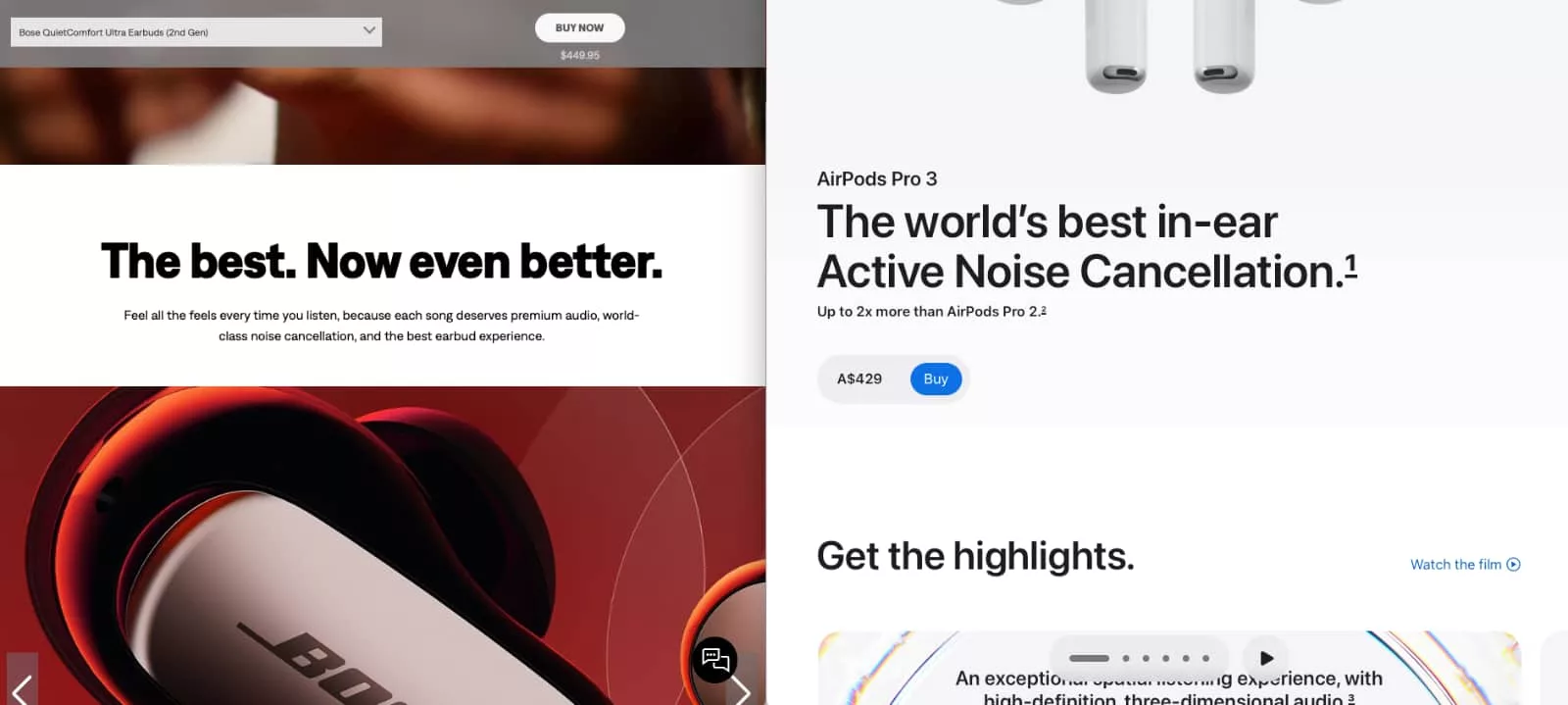
Design
We’ll start this head-to-head with design, and that’s one category neither pair of earphones is particularly ahead in.
With the AirPods Pro 3, Apple has taken its stem-based AirPods Pro and tweaked the design so that it fits more comfortably in the ear, though we found it can take some getting used to. Minor tweaks here and there in the design, though it’s not one that stands out significantly from its predecessors.
The same is true with Bose’s second-gen Quiet Comfort Ultra Earbuds: there’s a slight change in the design, but nothing significant enough to make a difference. The Bose are still a little longer than you might want, and like the AirPods Pro, they’ve not been made smaller.
In short, both designs are more of the same, which isn’t a bad thing, but rather just leaves them both in the same position.
Winner: Tie
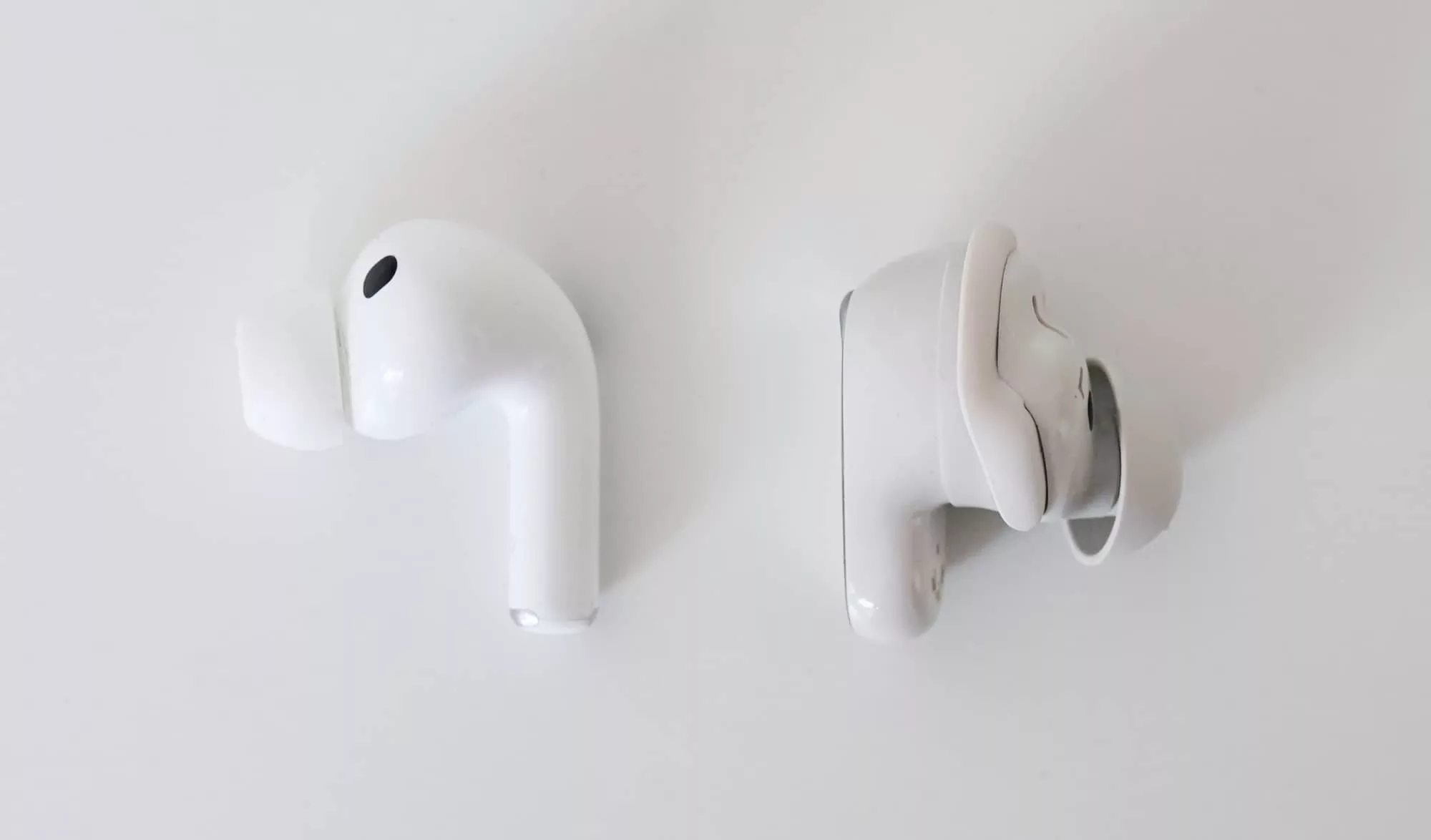
Comfort & Fit
But they’re both just as comfortable as each other, which is to say you’ll have to use earphone tips with each, and you may have to twist them into place, as well.
The AirPods Pro 3 are comfortable enough, but can take some getting used to, and the Bose QC Buds 2 are much the same as well.
They’re both as comfortable as each other, provided you’re fine with ear tips.
Winner: Tie
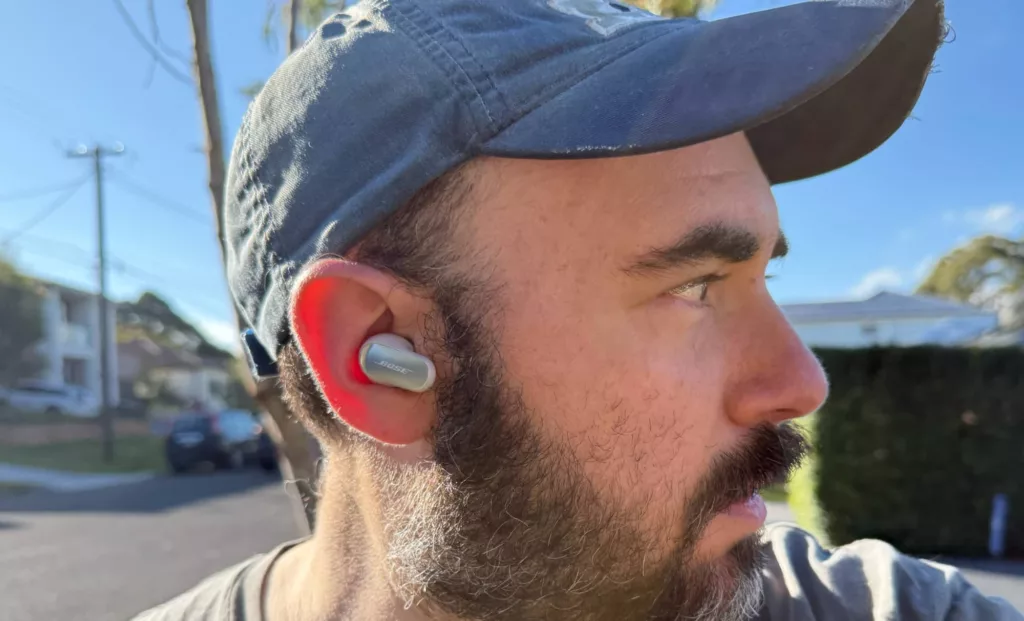
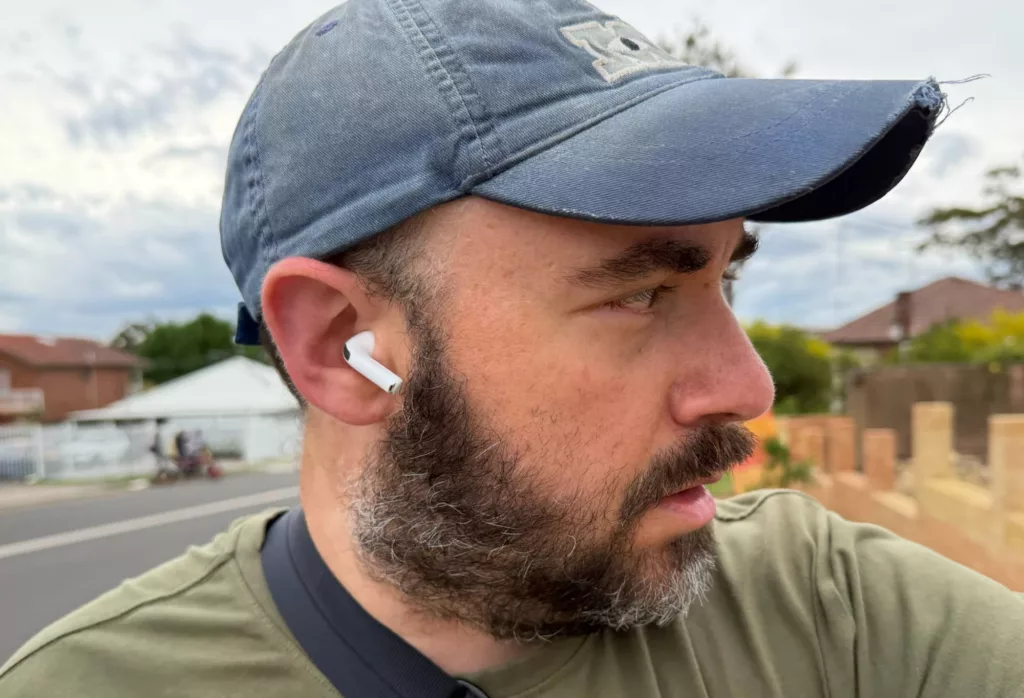
Durability
When it comes to how strong each are, we probably wouldn’t go out of our way to drop either on the floor, though both should survive.
However, there’s a metric you can use to determine overall durability: IP rating.
Ingress protection or “IP” basically means how much water and dust or sand has been protected on the hardware, allowing you to take it places. Water resistance for earphones doesn’t typically mean “let’s go swimming”, but more “surviving a deluge with your earphones”, as most earbuds offer sweat resistance as a minimum.
In the case of the Bose QuietComfort Ultra Buds 2nd-gen, that sweat resistance is all you’ll really get, maxing out at an IP rating of IPX4.
Apple, meanwhile, has boosted its protection of the AirPods Pro 3, rating these earphones for IP57, which basically means sweat and rain resistant, and also able to ward off some dust and sand, as well. They’re almost on par with the iPhone range, which covers a higher ingress protection rating of IP68.
Winner: Apple AirPods Pro 3
Controls
How do you like to control your earphones: swipes and squeezes on a stem, or taps and swipes on a small touchpad?
That’s the choice with either model, with neither doing anything particularly poorly. Both are easy to use, and both let you jump out of noise cancellation and into transparency modes rather easily. We wouldn’t say either has a leg up on the other here.
Winner: Tie
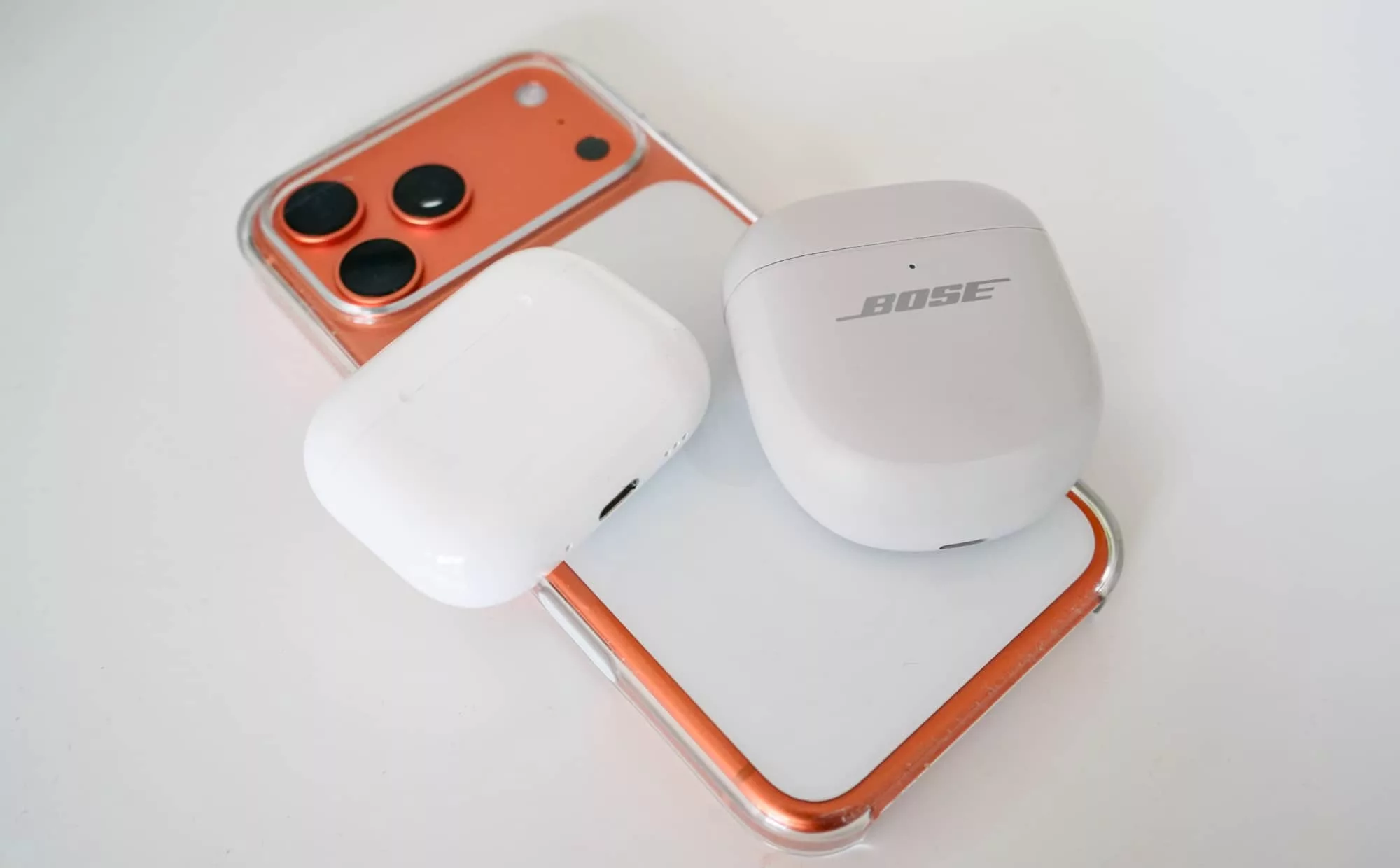
Connection & Reliability
Another thing they’re both very good at is reliability.
Apple’s AirPods Pro 3 unsurprisingly connect easily with an iPhone, iPad, Mac, or Apple TV, and while they can work with other devices, Apple-made gear is where they work best, delivering minimal dropouts and plenty of music (or whatever else you listen to).
Meanwhile, the Bose equivalent in the QC Buds Ultra 2nd-gen maintain a consistent connection on every operating system we tested — mostly Android and iOS — and offer minimal dropouts, as well.
Both of these deliver some of the most consistent and best connectivity you can find today.
Winner: Tie
Sound quality
And they both deliver exceptional sound quality, too.
But Bose may have the edge when it comes to audio, and not necessarily because Apple isn’t good, but rather because sound from the Bose QC Buds Ultra 2nd-gen was more consistent in its balance than what Apple delivered.
Back when we reviewed the Apple AirPods Pro 3, we noted some of the weird problems with the sound, which mean some tracks sound hollow and off, while others are excellent. The guess is an Adaptive EQ feature you can’t turn off, but the result means the AirPods Pro 3 don’t always have reliable sound.
The Bose do. Every track is consistent and strong, offering great balance, a solid soundstage, and a nice amount of detail. The app offers some more controls, but we think Bose delivers a more reliable and consistent sound in its pair.
Winner: Bose QuietComfort Ultra Earbuds 2nd-gen
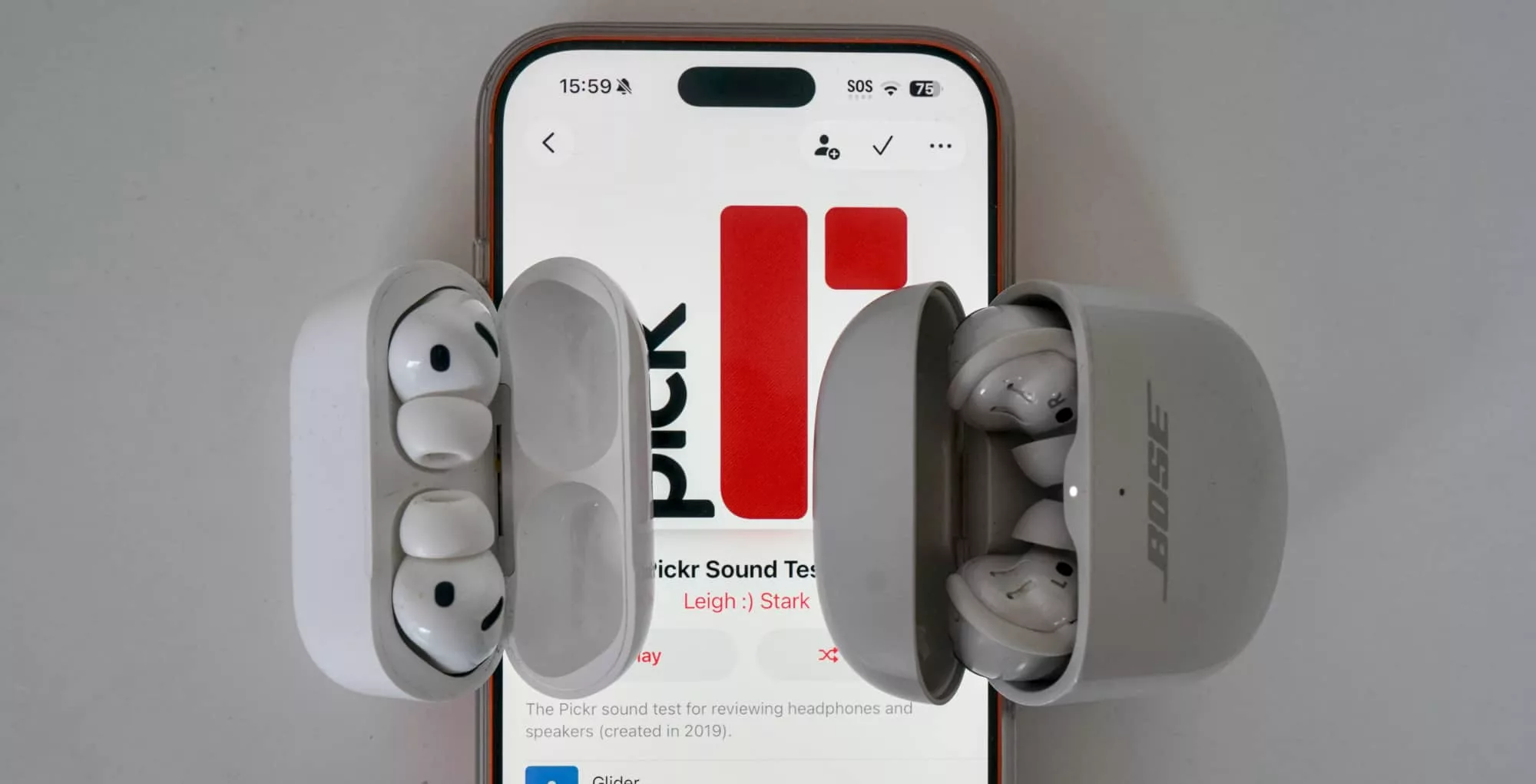
Noise cancellation
Noise cancellation is where things get really interesting.
For the past few years, Bose has really led this category by delivering some of the best active noise cancellation technology we’ve ever seen, and this year’s pair was even better.
To make things more interesting, Apple has said its AirPods Pro 3 offer the world’s best noise cancellation, a claim we had to test… so we did.
Using both pairs of earphones next to a road as we’re walking was roughly the same: both the AirPods Pro and Bose QC Ultra 2nd-gen cancelled about the same amount of sound.
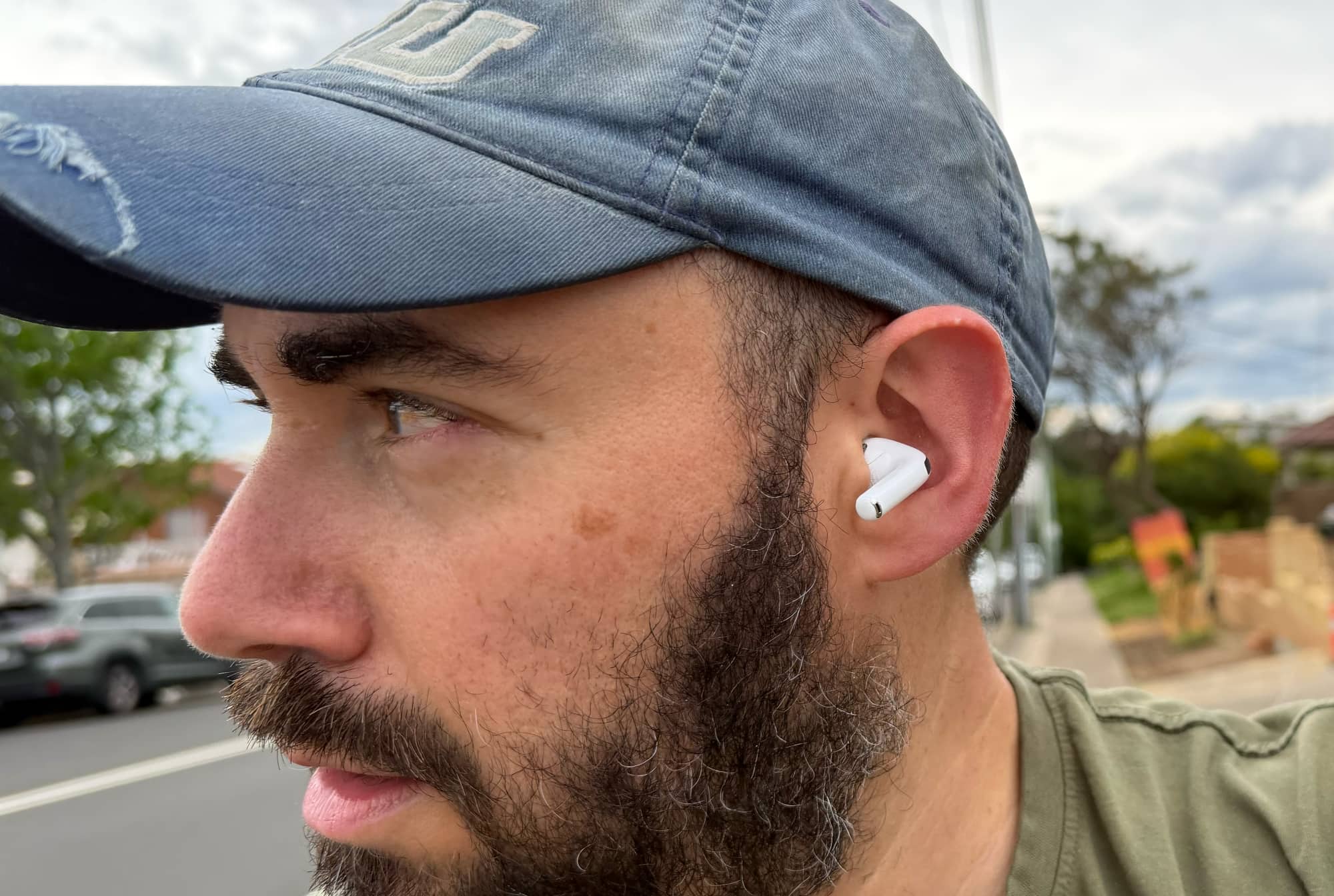
But when we stopped walking, Apple’s cancellation was better, turning the sound of the busy road into silence ever so slightly better than the Bose equivalent. The same occurred when we were a few meters from the road, with Apple ahead by a hair.
It’s not much, and is really difficult to discern. Taking each pair in and out, the differences were minor, but Apple is ever so slightly ahead in its cancellation efforts.
Winner: Apple AirPods Pro 3
Compatibility
However, because Apple gear tends to work best with Apple gear, one fight the AirPods Pro 3 are unlikely to win is with compatibility.
The AirPods Pro 3 play nicely if you own an iPhone, iPad, Apple TV, Mac, and so on. And the head-tracked spatial audio feature works on Apple Music on those devices, as well.
But if you use Spotify on your iPhone, spatial doesn’t work. And if you own an Android phone and play Apple Music, the AirPods Pro 3 won’t play spatial, either.
In fact, if you own an Android and want to use the AirPods Pro 3, your experience won’t be amazing. Unlike Beats gear, there is no Apple-made app and not a lot of support.
The AirPods Pro 3 aren’t going to play nicely with Android.
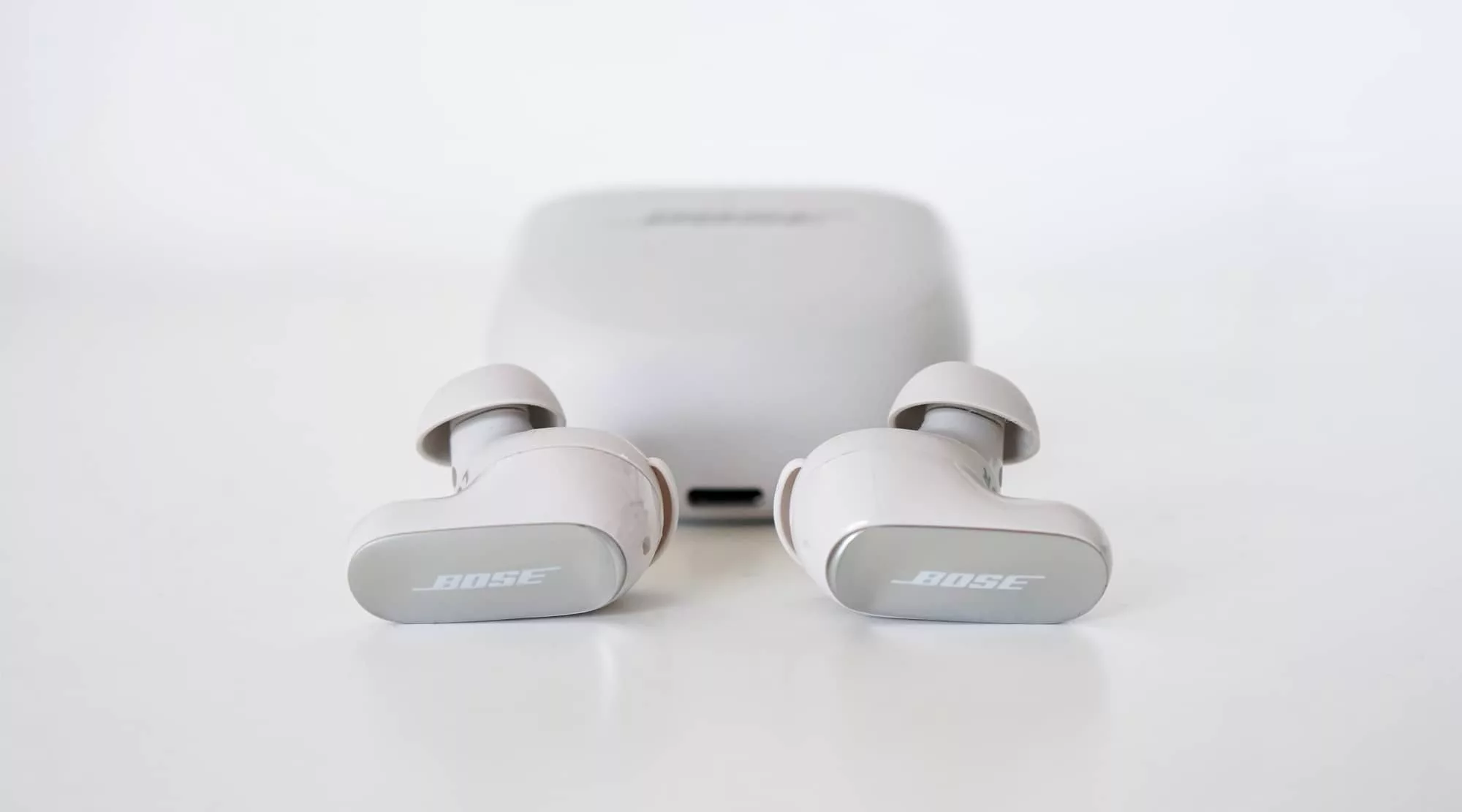
But Bose’s buds definitely do. They not only connect with iOS and Android alike, and offer an app for each mobile OS, but they also support a version of spatial audio that works across iOS and Android and Apple and Spotify and so on. It’s not exactly the same, but it’s a compatibility we wish Apple provided.
Winner: Bose QuietComfort Ultra Earbuds 2nd-gen
Battery
Both are also quite similar when it comes to battery life, as well, achieving a maximum of 24 hours from the battery in the case, but differing in the battery life on the earphones themselves.
On Bose’s side, we found the battery life of the QC Buds Ultra 2nd-gen typically hovered between 4 and 6 hours of performance depending on if you opted to have spatial audio with head tracking on. Meanwhile Apple manages to achieve up to 8, normally getting closer to 6 to 8.
They both have the same overall battery life, but Apple fares better on listening time, giving this one to Apple.
Winner: Apple AirPods Pro 3
Case
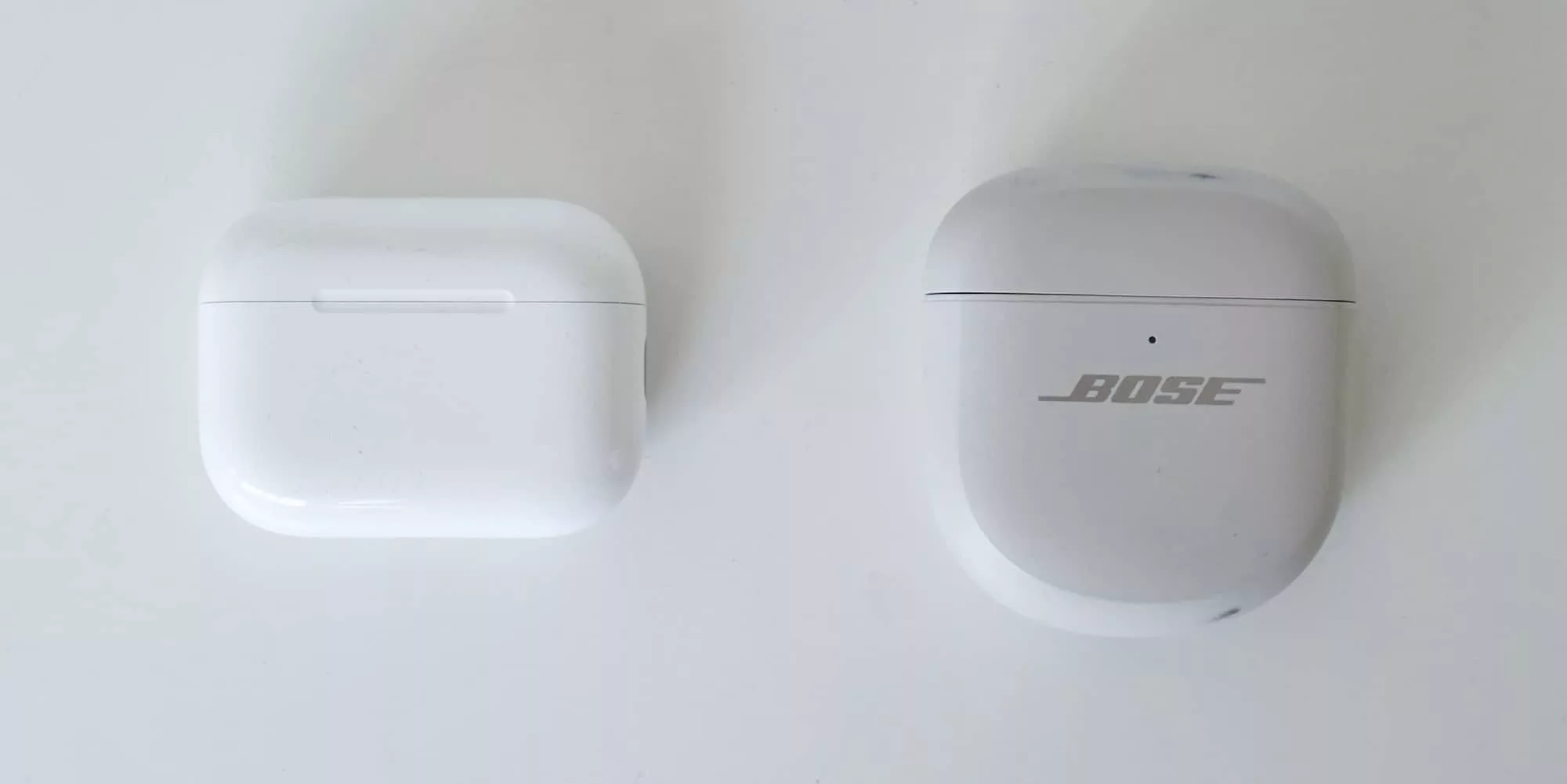
Storing those earbuds is a major part of the feature set, thanks in part to the battery in the case. That’s part and parcel of every pair of earphones, and neither model is special in that way.
But one pair definitely has the edge here, thanks in part to a slightly smaller and far more pocket friendly design: Apple.
The AirPods Pro 3 offer a slightly smaller case with a simpler design, making it very easy to pocket.
Bose’s battery case is a little bigger by comparison, and while it’s easy to grab and pocket, it’s not quite as pocketable as the AirPods Pro case.
Winner: Apple AirPods Pro 3
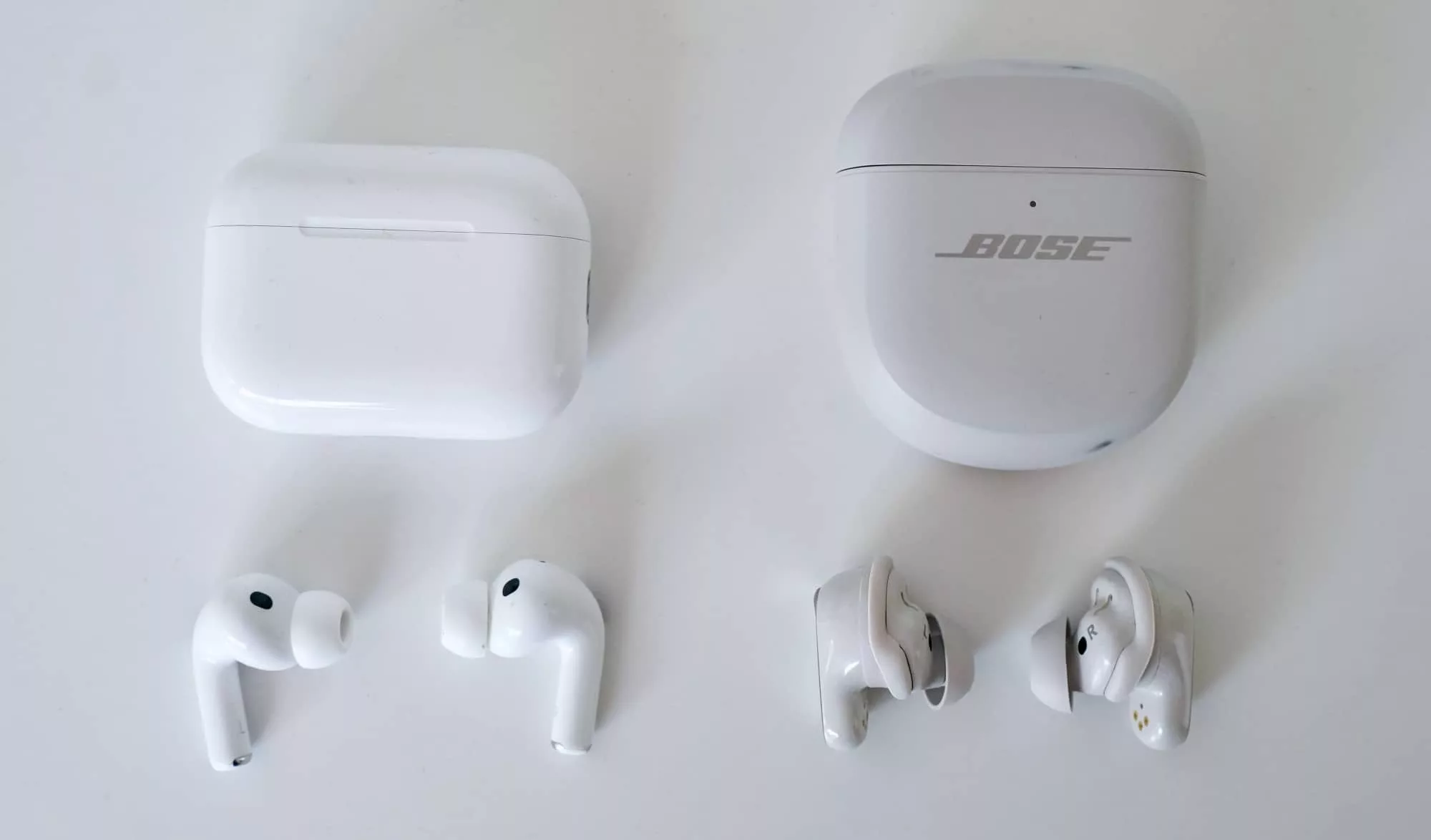
Value
But priced between $429 and $450 for either of them, the value may as well be identical.
Technically, Apple’s have the better price — we won’t argue there — but the lack of full compatibility beyond the world of Apple devices makes up for the extra few bucks you’ll be paying for the Bose equivalent.
We’ll call this round a draw.
Winner: Tie
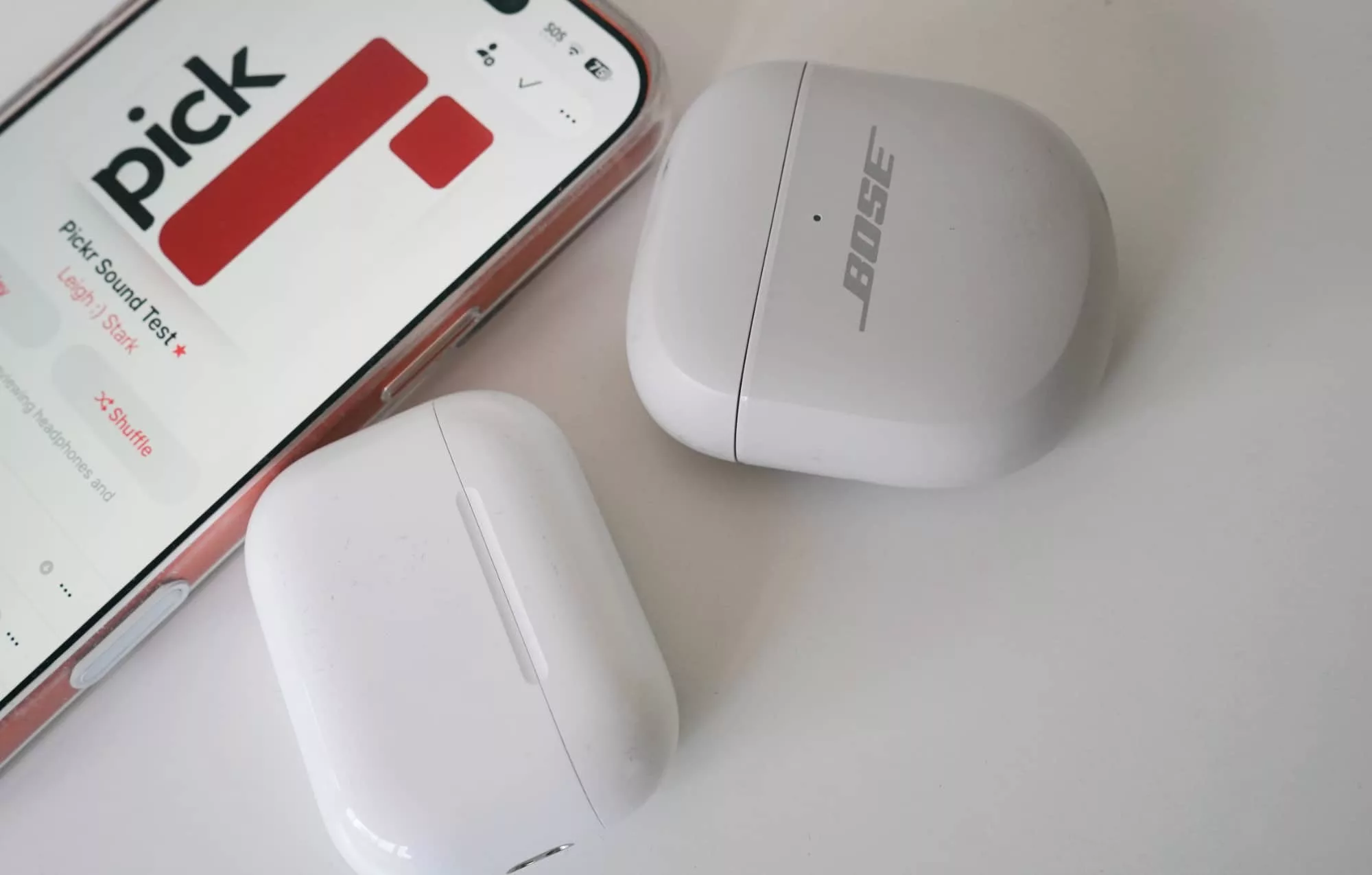
What should I choose: Apple AirPods Pro 3 or Bose Quiet Comfort Ultra 2nd-gen?
It’s close, but Apple edges out ever so slightly in our comparison, with only a handful of points over Bose, and breaking what would otherwise be a tie.
However, it’s close, and with most rounds ending in a draw, either pair of earphones make a suitable choice if you’re looking for the best noise cancelling buds you can afford, provided your budget is just over the $400 mark where flagship earphones typically sit.
If you live in the Apple world and have an iPhone with Apple Music, we’d probably suggest the AirPods Pro 3 are the best choice. They may even be ideal with Spotify (though you’ll miss out on spatial).
But with AirPods lacking an app over on Android, it’s a different story if you’re buying for a Google Pixel, Samsung, Motorola, Oppo, or just about any other device that runs a different operating system.
Bose offers one of the best noise cancelling pairs around, and with support for spatial and compatibility across iPhone and Android, we’d suggest folks consider Bose’s latest pair for one of the most solid noise cancelling efforts you can find to date.
They’re both great, though, so whichever one you end up on will give you a great experience.
Great for Android
Bose QuietComfort Ultra Earbuds (2nd-gen)
Key Features
- Still great sound
- Slightly improved noise cancellation
- Spatial audio with head tracking works cross platform
- Supports wireless charging
Great for iPhone
Apple AirPods Pro 3
Key Features
- Some of the best noise cancellation from any pair of earphones
- Sound quality is typically great
- Support for heart-rate tracking
- Head-tracked spatial audio


